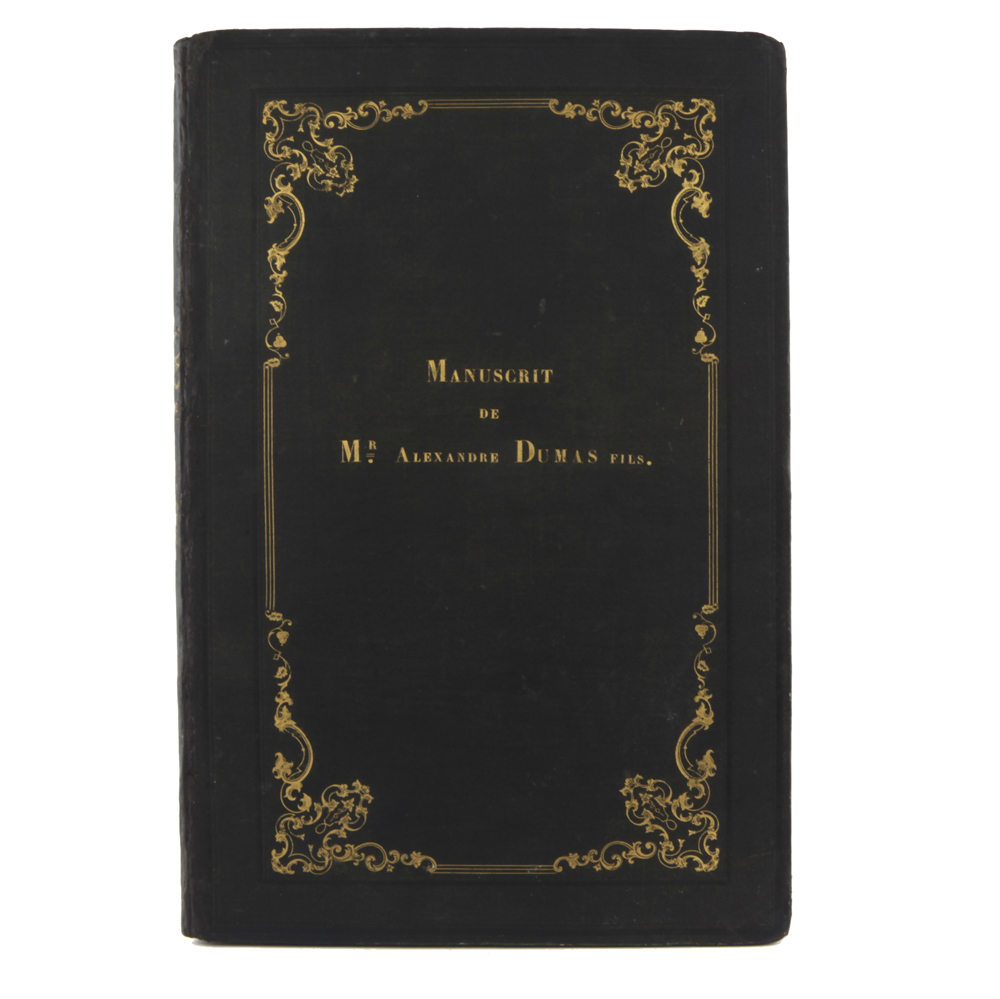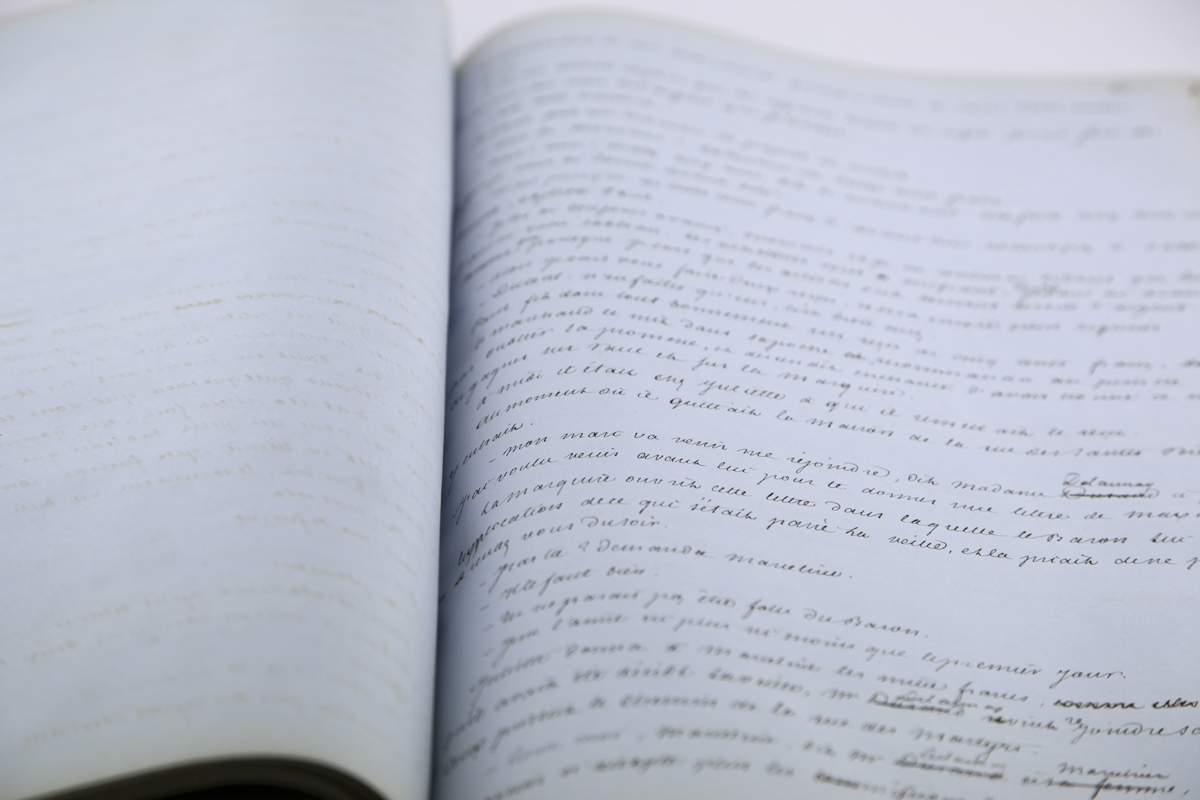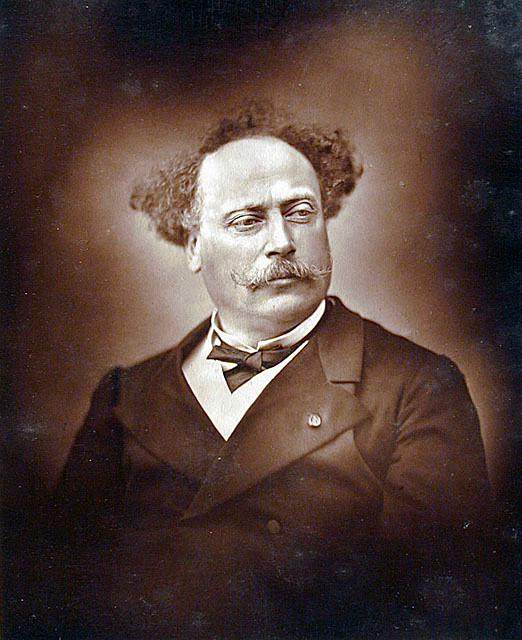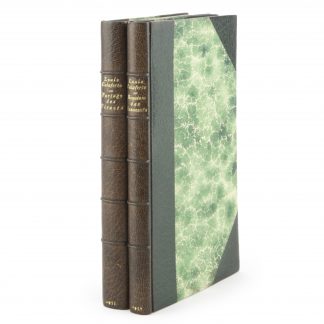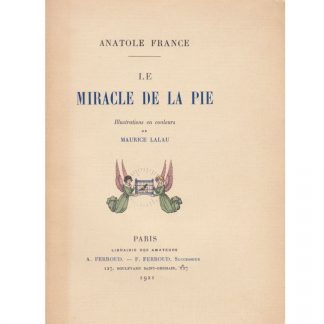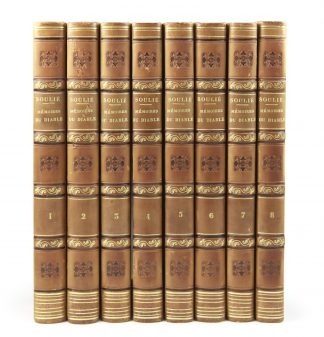Description
PRECIOUS COMPLETE MANUSCRIPTwith erasures and corrections, of a first unpublished version of the early novel Diane de Lys.
According to a final note by the author, it was written in the wake of The Lady of the Camelliassince he was "began on 1 April, finished on 19 April 1848 at nine o'clock in the evening". The manuscript was bound at the time by the author in elegant decorated full cloth boards and given as a gift to the great autograph collector Paul-Arthur Chéramy. SIGNED AUTOGRAPH CONSIGNMENT :
"Presented to Cheramy by a dear friend A. Dumas F."
The original edition of the novel was published in 3 volumes by Baudry in 1851. Like the Ladies of the Camellias inspired by the author's relationship with Marie Duplessis, biographers have readily made Dumas's relationship with The Lady of the Pearls the starting point for Diane de Lys. However, this relationship with the wife of the Russian Ambassador to France, which took the author all the way to Russia, did not begin until 1849, by which time the present manuscript had been completed several months earlier. During the three years between writing and publication, the author reworked his text, which explains the many discrepancies between the present manuscript and the 1851 edition. To this day, this version seems to have remained unknown.
This novel is considered to be the second part of the trilogy of the author's early novels devoted to what he called the demi-monde : The Lady of the Camellias, Diane de Lys and The Half-World. Just like the Lady of the Camellias, Diane de Lys was adapted for the stage and first performed in Paris on 5 November 1853 at the Gymnase dramatique : "Paris still remembers the first performance of Diane de Lys. This brilliant evening had all the makings of a triumph. When the curtain came down, the applause could still be heard; flowers were still raining down from the front of the stage. Standing tall on the staircase leading to the foyer, Alexandre Dumas père beamed with legitimate pride and, with his hands outstretched to the crowd, received the tributes addressed to his son: "-Ah! Dame c'est la seconde génération" he exclaimed, quite logically associating himself with this success. (P. Audebrand, Alexandre Dumas at the Maison d'or: memories of literary life, 1888).
Complete manuscripts from this period are rare.
Bound in full black cloth with romantic decoration, smooth titled spine. Joints restored.

